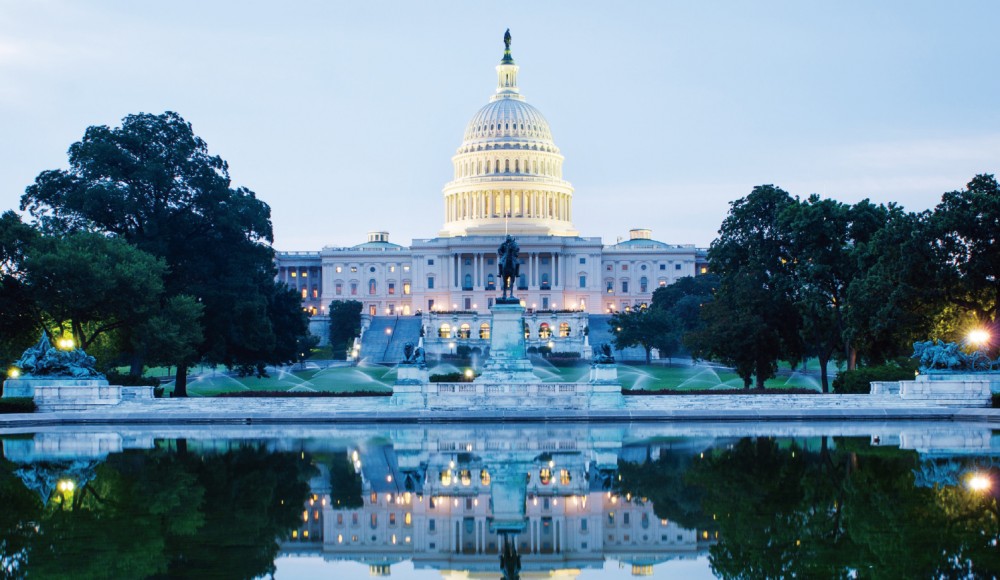July is here and Biden has been in office for six months. The US president promised a lot as an election candidate. What has changed in his overall policy approach after these six months? What impact will there be to the world, to the Sino-US relationship, or even to Hong Kong’s economic development?
Richard Hu: US Striving for Leadership as it Continues to Compete with China

 Us President Joe Biden, who has been in office for six months now, wants to re-establish the US’s voice in international affairs. Richard Hu, Dean of the Faculty of Social Sciences at the University of Macau, expects Biden during his presidency to strive to restore the US’s global leadership and maintain its competition with China.
Us President Joe Biden, who has been in office for six months now, wants to re-establish the US’s voice in international affairs. Richard Hu, Dean of the Faculty of Social Sciences at the University of Macau, expects Biden during his presidency to strive to restore the US’s global leadership and maintain its competition with China.
Amid the ongoing COVID-19 pandemic, since taking office Biden has been urging the US people from all walks of life to jointly fight the pandemic. Hu believes that Biden would, to some extent, strive for the US to become a world leader and rebuild its global image and leadership previously destroyed by Trump. Therefore, he would focus on improving the US economy to enhance its competitiveness. There is also a good chance that he would use more “smart power” to fulfill what he said during his election campaign to “compete with China from a position of strength”.
Using smart power to focus on long-term benefits
Hu expects Biden to use a lot of resources to rebuild the alliance system with its allies, win over more countries around China to contain China, and even create conflicts between China and Russia to divide the relationship between the two countries. He said that although Biden would compete with China in some areas of governance, he would also attempt to cooperate with China on a number of fronts.
Hu also noted that establishment Democrats have always attached more importance to international rules and the US’s world leadership, and previously, Trump’s hawkish economic policy stance was a form of mercantilism. In contrast, the Democrats’ policies focus on long-term interests, such as competing with China in high-tech and innovation capabilities, rather than using tariffs to exert pressure.
Suppressing high-tech to curb China’s expansion
 “Therefore, Biden would likely continue to compete with China in the high-tech arena.” Hu noted that the US would adopt measures such as export restrictions in response to China's so-called “forced technology transfer” and demand China to open up its markets. He added that the US may care about the opening up of capital markets and trade in services in the future, and he believes that the US could be relatively lenient in dealing with issues such as personnel exchanges and international students.
“Therefore, Biden would likely continue to compete with China in the high-tech arena.” Hu noted that the US would adopt measures such as export restrictions in response to China's so-called “forced technology transfer” and demand China to open up its markets. He added that the US may care about the opening up of capital markets and trade in services in the future, and he believes that the US could be relatively lenient in dealing with issues such as personnel exchanges and international students.
Hu further noted that the Democratic Party is characterized by its attempts to restore US leadership through international efforts, such as uniting countries in the Asia-Pacific region to put pressure on China, and even shutting out China through international rules, as well as trade arrangements and systems. He expects that Sino-US trade relations would not revert to the situation that prevailed during the first decade of the 21st century. “At that time, China had more room to develop trade arrangements with neighboring countries, but now the US regards China’s B&R as a form of ‘imperialism’ and would likely go all out to suppress it.”
Francis Lui: Blockading China will Inflict Internal Damage Amidst Inflation and Rising Cost of Debt

 As Biden’s presidency entered its sixth month, the vaccination program in the US is implementing in full speed, and a stimulus package with astronomical figures is launched. Meanwhile, with the Sino-US relationship deteriorating, Biden is more actively soliciting its allies to blockade China and to form a confronting setup. According to Francis Lui, Emeritus Professor of the Department of Economics at the Hong Kong University of Science and Technology, the US is facing the dilemma of accelerating inflation and rising costs of debt. If it decides to join hands with allies who have no wish to cut ties with China to fight against and impose sanction on China, the ultimate damage will be inflicted on its own interests.
As Biden’s presidency entered its sixth month, the vaccination program in the US is implementing in full speed, and a stimulus package with astronomical figures is launched. Meanwhile, with the Sino-US relationship deteriorating, Biden is more actively soliciting its allies to blockade China and to form a confronting setup. According to Francis Lui, Emeritus Professor of the Department of Economics at the Hong Kong University of Science and Technology, the US is facing the dilemma of accelerating inflation and rising costs of debt. If it decides to join hands with allies who have no wish to cut ties with China to fight against and impose sanction on China, the ultimate damage will be inflicted on its own interests.
Borrowing to stimulate the economy amidst inflation is a double-edge sword
Once in office, Biden signed a massive USD 1.9 trillion COVID relief package in March. He subsequently proposed a budget of USD 6 trillion, which has been criticized by Republican congressmen for the possibility of worsening the national debt situation; imposing tax on the rich will also weaken the global competitiveness of the US.
“Currently, the US has a national debt of USD 2.8 trillion. Yet, it has been able to continue with issuing debts to pay for its enormous financial expenditure because of low interest rate. When the market considers the US debt situation as critical and then demands (the US Department of Treasury) a rate hike for US debts before it is willing to lend more to the country, the costs for issuing debts will rise.” Lui added that both wage and commodity price will rise if inflation is stimulated by “money-printing”. In other words, the cost of infrastructure investment will also go up. He also pointed out that the greenback will continue depreciating when there is inflation and “money-printing”. In the long term, people’s confidence with the USD will be shaken, which, in turn, will drag the US dollar’s hegemony into a mess.
Allies has no genuine intention to join the anti-China front
As expected, Biden changed the unilateral diplomacy style of the former president Trump and strives to make amends with traditional allies. Lui agreed that Biden’s administration is conducive to improving US relationships with allies. Yet, the best it could do is to look amicable on the surface. “China is a top trade partner around the world, NATO members, Japan and South Korea do not wish to become an enemy of China to start with. With the strong economic strength of China, any anti-China stance or discussion put forward by US allies is only a front. In reality, they all have carried on conducting business with China.”
Lui stressed that the globalized economy has promoted the idea of comparative advantage. Countries are now interdependent, and productivity is lifted; people’s standard of living is mutually improved. If the US insists on driving “decoupling”, the comparative advantage of different countries will be weakened. The move will even trigger global economic recession. As a result of no trust between the two power nations, sanctions or even retaliation will take place. This will not only inflict internal damage to the US but also cause harm to the global economy.
Hong Kong’s international financial hub position will not be implicated
For many years, Hong Kong has been torn between China and the US As Lui put it, the Hong Kong dollar peg has made the currency an avatar of the US dollar. Legally, the US cannot cancel the linked exchange rate system of the Hong Kong dollar. Mainland companies listed in Hong Kong, and even HKEX, will all continue to benefit from exiting the US and raising capital through listing in Hong Kong.
Lui pointed out that the pegged Hong Kong dollar could drive the market’s demand for the US dollar. However, if the US weakens Hong Kong’s pegged rate system through monetary tools, people will only lose their confidence in the credibility of the greenback. Lui said that new capital supply will be, inevitably, concentrated in China and East Asia. As such, US sanctions against Hong Kong are nothing to be held in fear.




